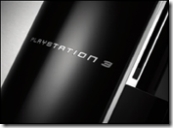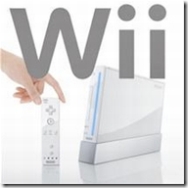The future is bleak for Sony's Playstation 3.
The BBC reported last week that the European release of the Sony  Playstation 3 will be delayed until March 2007. This not only means that Sony will miss the highly profitable holiday season, but it will most definitely lose out in profits to the Nintendo Wii and XBox 360, which was released last year.
Playstation 3 will be delayed until March 2007. This not only means that Sony will miss the highly profitable holiday season, but it will most definitely lose out in profits to the Nintendo Wii and XBox 360, which was released last year.
According to Ken Kutaragi, head of Sony's global computer and entertainment division,
"Mr Kutaragi blamed the European delay on problems in mass producing elements of the high-definition Blu-ray disc drives in the machines."
Sony still plans to release the new game console on November 11 in Japan and November 17 in the US, but due to the delayed European release, its sales forecast for the year has been cut in half: Sony only expects to sell 2 million units by the end of the year, down from its original estimate of 4 million. The production problems have caused Sony officials to anticipate fewer units available for the American and Japanese release of the system, with just 100,000 units being made available for the Japanese launch and 400,000 available for the American launch. This is the second time the release of PS3 has been significantly delayed: original plans scheduled the release of the console in the spring of this year, but other problems with Blu-ray technology prevented this early release.
All these problems encountered by Sony in the creation of the PS3 has led me to believe the Sony might be trying to do to much. While Nintendo has focused on creating a relatively simple, yet creative, video game system, Sony has tried to incorporate too many technologies in the PS3. As a result, the production is difficult, and the final product is prohibitively expensive. In fact, SciTech Today recently reported that, "The next-generation console for gaming enthusiasts is the Wii-60," said Penny Arcade comic strip writer Jerry Holkins, alluding to the prospect of buying both the Nintendo and Microsoft consoles for around the price of a PlayStation 3." In November, Sony reported a release price for the PS3 of $499 and $599 for the two different versions of the console.
After all, do we really need a video game system that aims to cure the world's diseases?
According to Information Week, researchers at Stanford University plan to use the extended capabilities of the PS3 for research on Alzheimer's, Cancer, and Huntington's Disesase as part of the Folding@Home Project:
They plan to use the cell processor power of Playstation3 to perform calculations for the Folding@Home project, which simulates protein behavior to give scientists clues about the disease process. The molecular simulation project allows researchers to study Alzheimer's Disease, Huntington's Disease and some cancers.
This is all truly fantastic, but possibly a bit over the top. I think the Nintendo Wii has a much better strategy. Beyond it's crazy new controller, it's modus operandi has been, for the most part, "keep it simple, stupid".
Nintendo is sticking to it's strengths and is using the Wii to link up its older  products. It seems like Nintendo is trying to win back original fans with the Virtual Console, which allows users to download and play games from older verions of Nintendo and Sega. For GameCube fans, the Wii console will be backwardly compatible with GameCube discs. It's also building on the success of the Nintendo DS and DS Lite by giving the Wii the ability to connect to the Web, and by making the Wii wirelessly compatible with the DS.
products. It seems like Nintendo is trying to win back original fans with the Virtual Console, which allows users to download and play games from older verions of Nintendo and Sega. For GameCube fans, the Wii console will be backwardly compatible with GameCube discs. It's also building on the success of the Nintendo DS and DS Lite by giving the Wii the ability to connect to the Web, and by making the Wii wirelessly compatible with the DS.
An official release date and price are expected to be announced by the end of this week, but rumors are indicating that the Wii console will sell for no more than $170 in the US, and will be released no later than November 24, 2006. Encouraging is the fact that the microprocessors that will power the Wii have been shipped by IBM…which is more than Sony has done.
UPDATE 9/15/2006: Nintendo has officially announced that the release date of the Wii in the US will be November 19, and the price will be $250, which is higher than original estimates hinted. Perhaps the PS3 delay has something to do with the higher-than-expected price: less competition means more people will buy the Wii because of lack of another choice. See this BBC article for a summary.
Sign up today to have our latest posts delivered straight to your inbox.